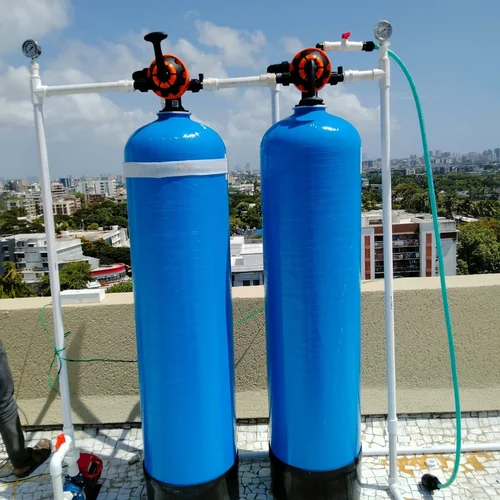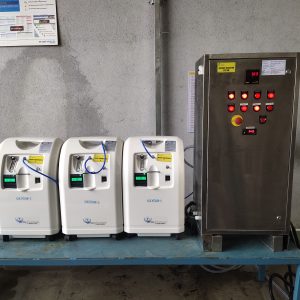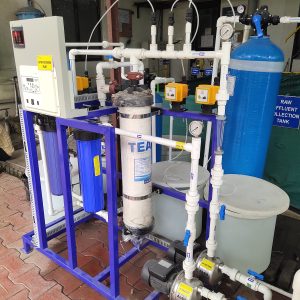Description
A water softener plant is a specialized facility designed to treat hard water and remove the excess minerals and impurities that can negatively affect water quality and create problems in various industries and households.
The primary purpose of a water softener plant is to eliminate the high concentration of minerals like calcium and magnesium, which are responsible for water hardness. These minerals, when present in excessive amounts, can cause scale buildup in pipes and appliances, reduce the efficiency of heating systems, and leave unsightly stains on fixtures, utensils, and surfaces.
The water softening process in these plants typically involves the use of ion exchange technology. The hard water passes through a series of resin beds containing small polystyrene beads or zeolite crystals. These beads or crystals have a negative charge and attract the positively charged mineral ions in the water. As the water flows through the resin bed, the mineral ions are exchanged with sodium or potassium ions, effectively softening the water.
The water softener plant consists of several key components, including resin tanks, brine tanks, control valves, and regeneration systems. The resin tanks hold the ion exchange resin and are responsible for the actual water softening process. The brine tank stores a concentrated solution of salt or potassium that is used for the regeneration of the resin. Control valves regulate the flow of water and brine, ensuring efficient operation of the plant. Regeneration systems help rejuvenate the resin bed by flushing it with the brine solution to remove the accumulated mineral deposits.
Water softener plants are essential in various industries, such as manufacturing, hospitality, agriculture, and healthcare, where the quality of water plays a crucial role. Moreover, households benefit from the installation of water softener plants to improve the lifespan and performance of appliances, reduce the consumption of detergents and cleaning agents, and enhance the overall water quality for bathing, cooking, and cleaning.
In conclusion, a water softener plant is a vital facility that employs ion exchange technology to remove minerals and impurities from hard water. It plays a significant role in improving water quality, prolonging the lifespan of equipment, and enhancing various industrial processes and everyday activities that rely on clean and soft water.





